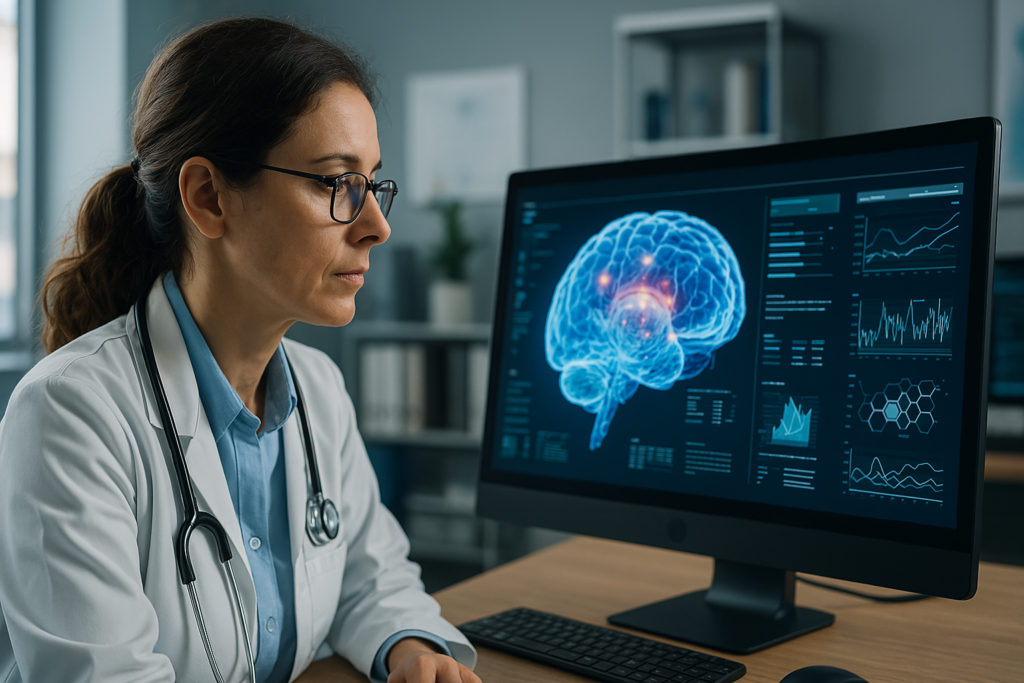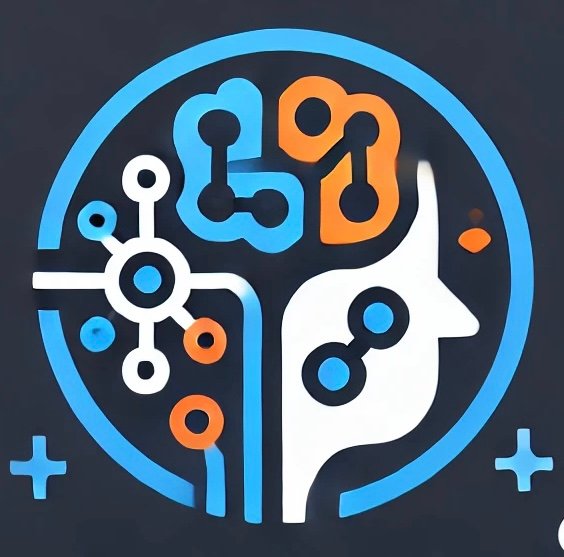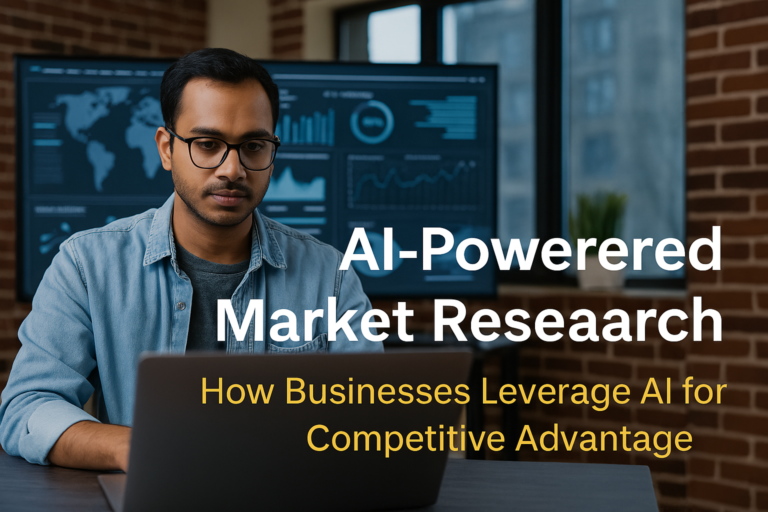Introduction

In 2025, artificial intelligence (AI) in healthcare is no longer a futuristic concept but a transformative reality. Consider this staggering statistic: according to Precedence Research, the global AI in the healthcare market is projected to reach $197.85 billion by 2030, growing at an incredible compound annual growth rate (CAGR) of 41.5% from 2022 to 2030.
The integration of AI in healthcare is reshaping medical practice, diagnostics, patient care, and research in ways we could only imagine a decade ago. This article will take you on a comprehensive journey through the world of AI in healthcare, exploring its benefits, challenges, real-world applications, and future potential.
By the end of this piece, you’ll understand how AI is not just a technological trend but a critical revolution that’s making healthcare more precise, personalized, and efficient.
Table of Contents
Background & Importance of AI in Healthcare
Defining AI in Healthcare
Artificial intelligence in healthcare refers to the use of complex algorithms and software to emulate human cognition in the analysis, interpretation, and comprehension of complicated medical and healthcare data. Unlike traditional computing, AI systems can learn, adapt, and make decisions with minimal human intervention.
Why AI Matters in 2025
The significance of AI in healthcare cannot be overstated. With global healthcare systems facing challenges like rising costs, ageing populations, and increasing medical complexity, AI offers innovative solutions that can dramatically improve patient outcomes and operational efficiency.
Supporting Data and Market Trends
A Deloitte report reveals that 82% of healthcare executives are planning to increase their AI investments. Moreover, AI-powered diagnostic tools have shown up to 95% accuracy in detecting certain diseases, compared to 86% by human experts.
Key Benefits & Challenges of AI in Healthcare
Top Benefits of AI in Healthcare
Enhanced Diagnostics & Accuracy
AI algorithms can analyze medical images like X-rays, MRIs, and CT scans with unprecedented precision. For instance, Google’s DeepMind has developed an AI system that can detect breast cancer more accurately than human radiologists.
Reduced Operational Costs & Efficiency Improvements
Healthcare institutions using AI have reported cost savings of up to 30% through process automation and predictive maintenance of medical equipment.
Personalized Treatment & Patient Care
Machine learning algorithms can analyze individual patient data to create highly personalized treatment plans. Companies like IBM Watson are pioneering this approach in oncology.
Faster Drug Discovery & Development
AI can dramatically reduce drug development timelines. Insilico Medicine used AI to design a potential drug for idiopathic pulmonary fibrosis in just 46 days, a process that traditionally takes years.
AI-Powered Robotics & Surgery
Surgical robots like the da Vinci system, now enhanced with AI, can perform minimally invasive procedures with greater precision than human surgeons.
Common Challenges & Solutions
Data Privacy Concerns
Challenge: Protecting patient data in AI systems. Solution: Implementing robust encryption, blockchain technologies, and strict compliance with regulations like HIPAA.
Ethical Dilemmas
Challenge: Ensuring AI makes ethical medical decisions. Solution: Develop transparent AI algorithms with built-in ethical guidelines and human oversight.
Implementation Costs
Challenge: High initial investment in AI technologies. Solution: Phased implementation, cloud-based AI services, and demonstrating long-term ROI.
Algorithmic Bias
Challenge: Preventing discriminatory AI decision-making. Solution: Diverse training datasets and regular algorithmic audits.
Real-World Use Cases & Applications
AI in Radiology
Tools like Viz.ai are revolutionizing stroke detection by analyzing CT scans in minutes and alerting medical professionals instantly.
AI-Powered Patient Care Chatbots
Platforms like Babylon Health provide 24/7 medical consultation, reducing healthcare access barriers.
Predictive Analytics
Epic Systems’ AI tools can predict patient deterioration hours before traditional monitoring systems.
AI-Assisted Robotic Surgeries
Intuitive Surgical’s da Vinci system now incorporates AI to enhance surgical precision and reduce complications.
Drug Discovery
Platforms like BenevolentAI are accelerating pharmaceutical research by analyzing vast scientific literature and identifying potential drug candidates.
Expert Insights & Thought Leadership
Dr Eric Topol, a leading digital medicine researcher, states: “AI will not replace doctors, but doctors who use AI will replace those who don’t.”
The competitive advantage of AI-driven healthcare lies in its ability to process vast amounts of data, recognize complex patterns, and provide insights that human analysis might miss.
Implementation Guide for Healthcare Providers
- Assess current technological infrastructure
- Identify specific AI use cases
- Choose scalable, compliant AI platforms
- Train medical staff
- Implement gradually with continuous monitoring
Debunking AI Healthcare Myths
Myth #1: AI Will Replace Doctors
Reality: AI is a tool to augment, not replace, human medical expertise.
Myth #2: AI Healthcare is Too Expensive
Reality: Long-term cost savings and improved outcomes offset initial investments.
Myth #3: AI Diagnoses Are Always Accurate
Reality: AI is powerful but not infallible. Human oversight remains crucial.
Future Trends & Predictions
AI-Driven Personalized Medicine
Genome sequencing combined with AI will enable hyper-personalized treatment plans.
Mental Health Applications
AI chatbots and predictive analytics will enhance mental health diagnostics and support.
Quantum Computing in Healthcare AI
Quantum computers will accelerate complex medical research and drug discovery.
Conclusion & Call to Action
AI in healthcare is not just a technological evolution—it’s a medical revolution. By embracing these innovations, we can create a more efficient, accurate, and patient-centric healthcare ecosystem.
Stay informed about AI healthcare trends. Explore our related articles on digital health transformation and AI-powered medical technologies.
Recommended Reading:
- The Future of AI in Medicine
- Ethical Considerations in Healthcare Automation
- Predictive Analytics in Patient Care
- The Future of Work: How AI is Transforming Every Industry in 2025 and Beyond
Disclaimer: This article is for informational purposes and does not constitute medical advice.




